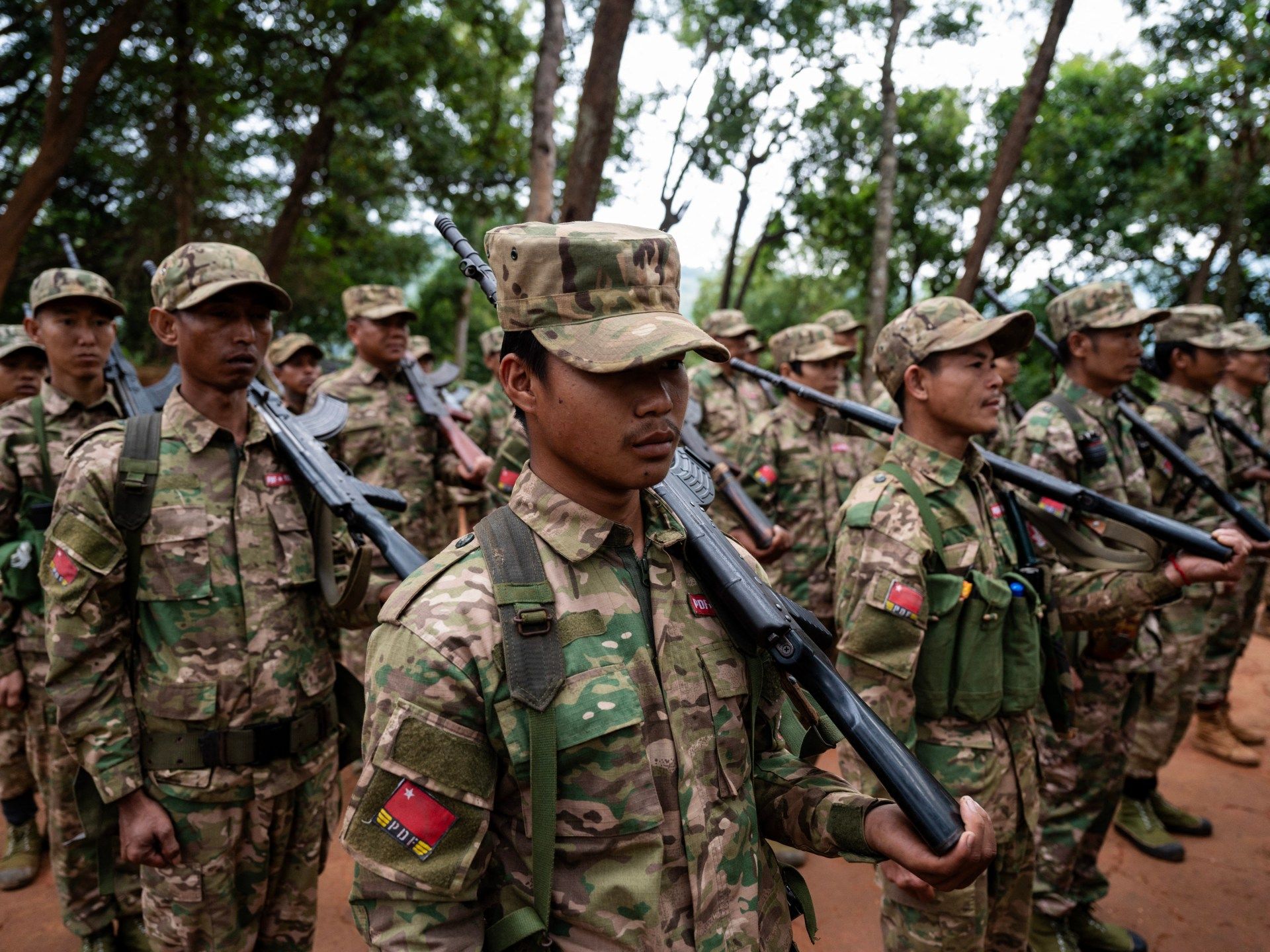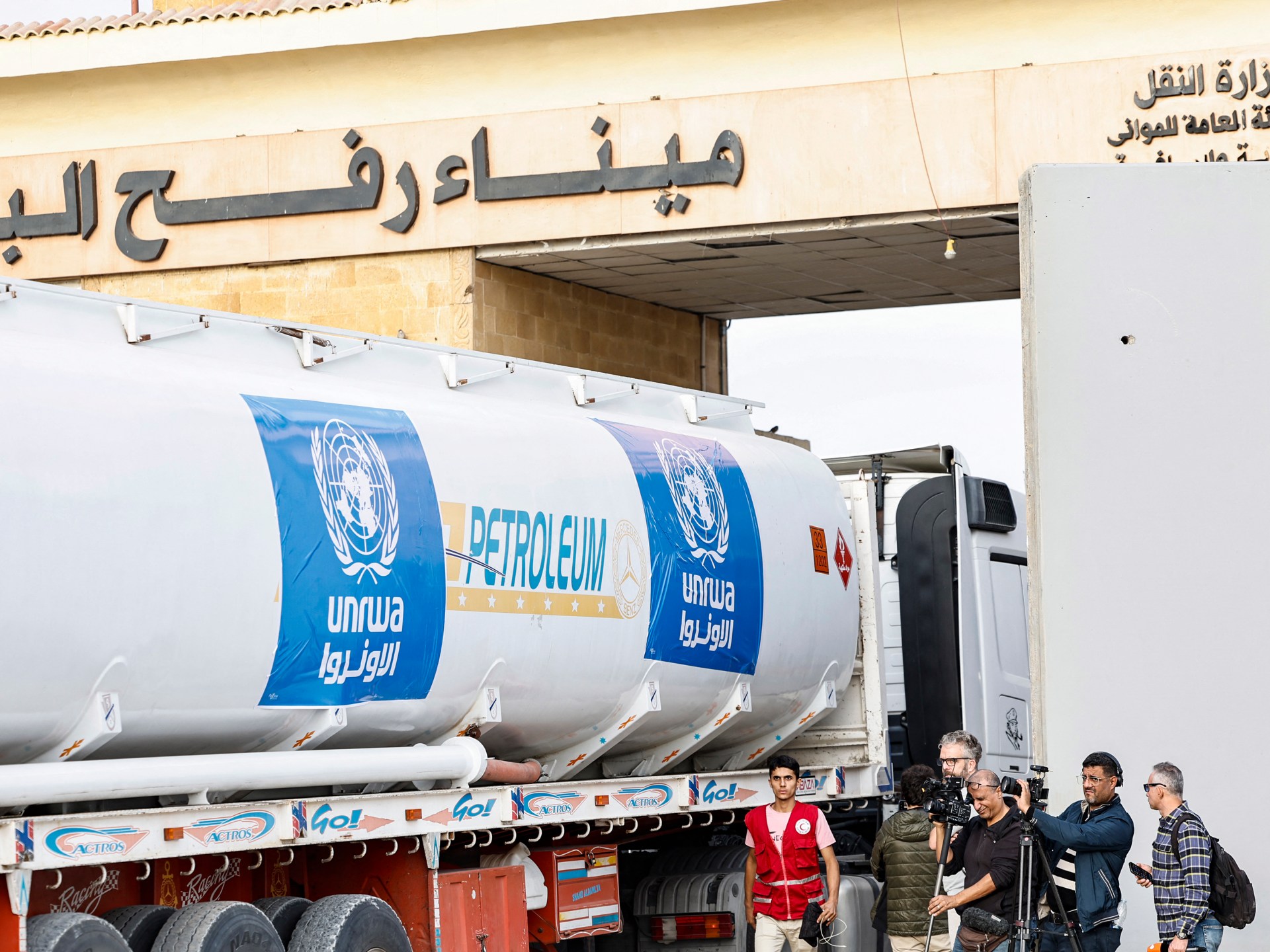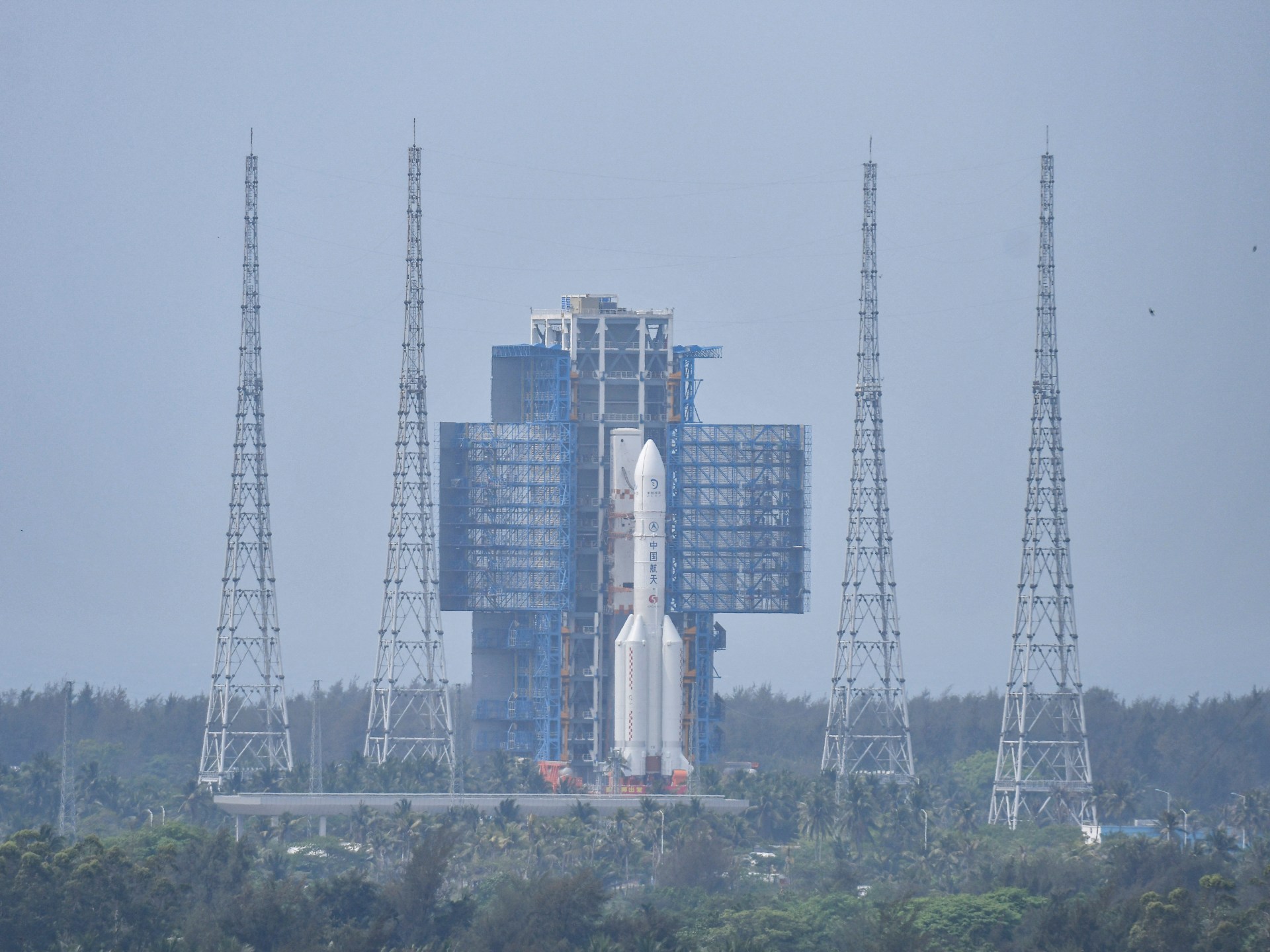Ko Naing* is just the kind of young man the Myanmar military is looking for.
Hoping to offset recruitment shortages and battlefield losses against armed groups fighting to reverse their 2021 coup, Myanmar's military last month announced plans to enforce a years-old recruitment law. .
Starting in April, the military says, all men ages 18 to 35 and women ages 18 to 27 will be required to serve at least two years in the armed forces.
Doctors and other professionals who are especially scarce in the military ranks can be recruited up to the age of 45. The country's military rulers hope to call up approximately 60,000 recruits by the end of the year.
As a doctor, and at a healthy age of 33, Ko Naing meets the requirements for mandatory military service.
Like many of Myanmar's young men and women, Ko Naing said he had no intention of answering the call and would instead do whatever was necessary to avoid conscription.
“The only thing that is certain is that I will not serve. If I am recruited by the army, I will try to move to remote areas or another country,” Ko Naing told Al Jazeera from Myanmar.
“Not only me, I believe that no one in Myanmar is willing to serve in the army under the conscription law,” he said. “People think it's not legal because they think the military is not their government.”
The 2021 coup that toppled Aung San Suu Kyi's democratically elected government has plunged Myanmar into a brutal civil war pitting the military against a patchwork of well-armed and deeply entrenched ethnic minority armies and a new generation of locally created armed groups. to remove the military regime from power.
Having weakened the military across the country, these ethnic armies have forced the military to withdraw from dozens of cities and bases since October, mainly in the east. The six-month campaign, called Operation 1027, has handed the ruling generals the worst streak of defeats of the war.
“The timing of the draft law's activation indicates their desperation,” said Ye Myo Hein, an adviser to the United States Institute of Peace and a fellow at the Wilson Center in Washington, DC.
“Following Operation 1027, the junta has faced continued and significant military losses, resulting in substantial depletion of its human resources and severe manpower shortages. In response to this situation, the military has chosen to activate the conscription law to replenish its dwindling personnel,” said Ye Myo Hein.
He also doubts that conscription will do much good for the military. The addition of recruits may help boost the morale of commanders on the front who are running out of soldiers, Ye Myo Hein said, but it is unlikely to curb military losses.
“New recruits may not be effective combatants in the short term. If they are deployed on the battlefronts, they could end up as cannon fodder,” he stated.
Ye Myo Hein said conscription could also backfire on the military by filling its ranks with resentful soldiers who could pose a threat from within and by driving more young people into the arms of the resistance.
'No one is safe'
The Army says recruiting will begin next month with an initial group of 5,000 recruits. However, unofficially, it may have already started.
In a recent statement, the United Nations special rapporteur on human rights in Myanmar, Tom Andrews, relayed reports of young people who were effectively “kidnapped” from the streets by the military and forced to go to the front.
The New Myanmar Foundation, a Thailand-based charity that helps those fleeing war, says it has also heard of soldiers and police raiding tea shops across the country in recent weeks in search of men and young women to pressure them to serve.
“Now they are losing, so they need the youth to fight for them,” the foundation's executive director, Sann Aung, told Al Jazeera from the Thai border town of Mae Sot.
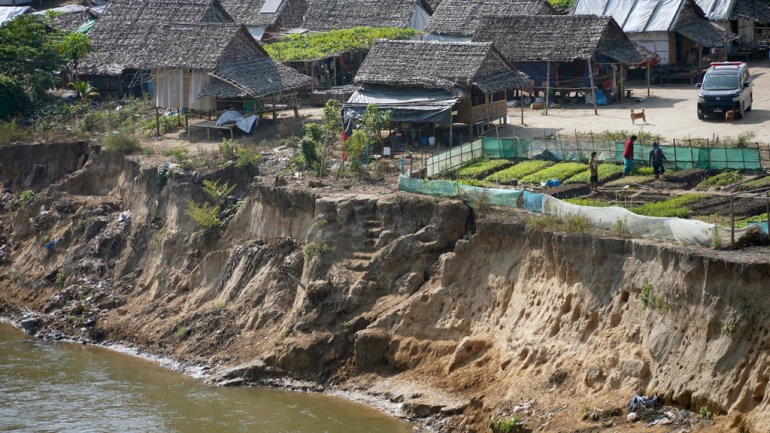
Activists, journalists and others targeted by the military have been fleeing the country – many through irregular means – amid a crackdown on critics and dissidents since the February 2021 coup. There are now fears that the new campaign recruitment turns a stream of political immigrants into a flood.
In his statement, UN rapporteur Andrews warned that Myanmar's dropout numbers would “certainly skyrocket” due to recruitment.
Ye Myo Hein also warned of a “mass exodus.”
“People living in urban areas have been trying to some extent to normalize their lives amidst the post-coup abnormality. However, the recruitment law gives the unmistakable signal that no one, not even those outside the conflict zones, is exempt from the repercussions of the military coup and is safe,” he stated.
Sann Aung said he has already seen the number of people fleeing towards the Thai border increase and echoed forecasts of a growing increase.
He said many travel to the relative safety of Myanmar's rugged and remote borderlands, where some of the country's strongest ethnic armies have over decades created enclaves largely independent of the central government. Some go to join the fight against the military, others simply to hide.
“This is the cheapest and most convenient way for them,” said Sann Aung. “But some people who [may] “They have more… money and cash, they move to neighboring areas, to neighboring countries, including Thailand, India and maybe China.”
He and other close observers say most of those fleeing are heading to Thailand, attracted by a large Myanmar diaspora before the coup, as well as better job prospects and a government in Bangkok that has kept the Myanmar military at arm's length. at least compared to China and India, who have been arming the generals.
Phoe Thingyan of the Overseas Irrawaddy Association, another displaced persons charity based in Mae Sot on the Thai border, said that since news of the recruitment plan emerged, the number of people arriving at the border or crossing has been “increasing every day.”
'Legally or illegally'
Overwhelmed by a recent surge of visa applicants at its embassy in Myanmar, Thailand has limited the number of people allowed to apply for an entry visa per day to 400. Even after doubling that daily limit to 800, application spots have filled up over the next few weeks. .
Again desperate to get travel documents to leave the country, hundreds of people invaded a passport office in Mandalay, the country's second-largest city, on February 19, accidentally killing two token sellers in line in the crowd. .
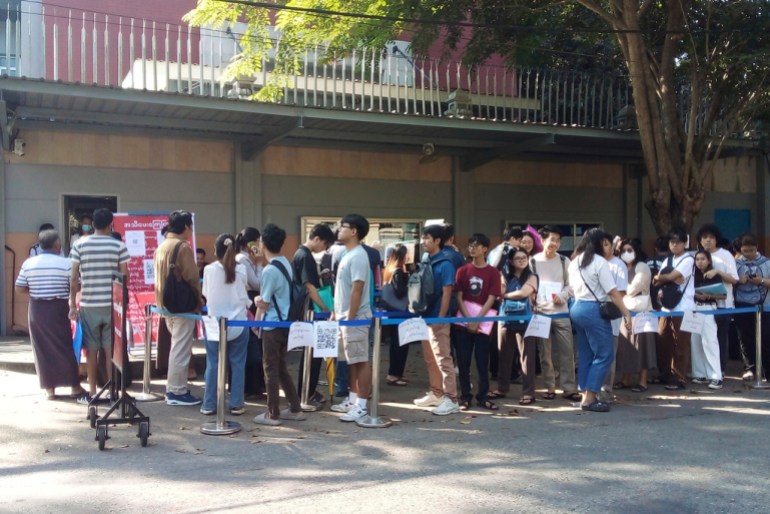
Phoe Thingyan and Sann Aung say those who were left out of the visa and passport process will probably leave anyway, however they can.
Thura*, 33, is one of those making escape plans in case he needs to flee.
Thura, a human rights worker, said he hopes to avoid conscription as a sole caregiver for elderly parents, one of the few exemptions from the conscription law.
“But if the military still tries to force me to serve, I will try to move to Thailand,” he said, “legally or illegally.”
Thura says the going rate for a covert trip from Mandalay to the Thai border is 2.5 million kyats (about $1,200), including fees from border smugglers.
Fearful of a new wave of people fleeing Myanmar, Thai Prime Minister Srettha Thavisin warned that anyone caught crossing the border illegally will face “legal action.”
Undeterred by the potential repercussions, Thura is determined not to fight for a military widely accused of waging an indiscriminate war that has killed thousands of civilians, displaced millions and plunged Myanmar into chaos.
His reasons are both personal and political. Thura tells how friends who joined armed groups fighting the army died in battle, and how another who was arrested simply for protesting against the military coup was sentenced to death.
“If they force me to serve in the military, I will try to move to another place or another country,” he said.
“But if I fail and they catch me and force me to serve, I will try to escape and run away. “I can’t shoot my friends.”
*Some names have been changed to protect the identities of people concerned for their safety.

